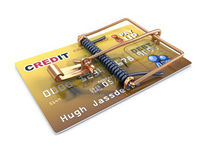Prize and Contest Scams
From Clicklaw Wikibooks
| Update: This page is in the process of being updated and the content is not to relied on. |
Contents
What prize and contest scams are?[edit]
You are told that you “have won first prize” or that you “have won first place in a contest.” The scammer will tell you that you’ve won something substantial (such as a large sum of money or a great prize) and that all you have to do is send them money to claim the prize. Or they may not even tell you what the prize is.
Scammers use a range of ways to reach you. For example, a text message tells you that you could win a great prize by participating in a trivia competition by texting. The first message may even contain a very easy question to tempt you.
Some scammers use names that resemble official organizations, or send an envelope announcing: It’s Your Lucky Day, or You Have Won. Or they enclose what looks like a government cheque.
Facts[edit]
- If you have to pay to receive your “prize,” you haven’t won anything.
- If you have to purchase products, provide a credit card or other account numbers, or send a fee in order to receive your prize, it is not a prize.
Ways these scams try to get your money[edit]
- You have to provide your credit card number to cover the shipping and handling fee, lawyer fees etc. or “taxes” to process your winnings. This may be for just a small amount – about $3 or $4. They want you to think, “It isn’t much money, so why not risk it?”
- In a texting competition or a texting trivia scam, the scammers make money by charging extremely high rates for the messages you send, and any further messages they send to you.
- You have to call a “900” phone number to find out what you have “won.” If you call a “900” number you are paying for the call.
- You have to make “a small purchase” (typically a few hundred dollars’ worth of small items such as pens, key chains, or light bulbs) to get the prize.
- You have to provide your credit card number or chequing account number for “verification” purposes. As soon as someone has your credit card number they can use it; they do not need to have your signature.
- You have to send a certified cheque.
- You are pressured to buy “on the spot” because the prize is available for a “limited time only.”
What you can do[edit]
- Don’t pay to win or enter. Buying goods or services won’t increase your chances of winning.
- Don’t call a 900 number.
- Never give your credit card number, number to someone who claims they will “deposit winnings” in your account.
- Be wary about responding to text messages or missed calls that come from numbers you don’t recognise.

